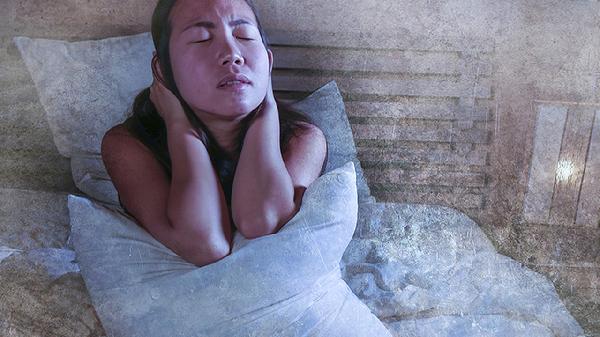Insomnia and neurasthenia are often conflated, as if they were "twin brothers." However, in reality, their relationship is more like "distant cousins"—while they share some similarities, they are fundamentally different. Insomnia, simply put, is the inability to sleep, whereas neurasthenia is a more complex state of nervous dysfunction. Today, we’ll uncover the mystery between these "cousins," exploring their differences and how to address them properly.

1. Definitions of Insomnia and Neurasthenia
Insomnia is a sleep disorder characterized by difficulty falling asleep, staying asleep, or waking up too early, leading to reduced sleep quality. Neurasthenia, medically referred to as "neurotic disorder," is a nervous dysfunction caused by prolonged mental stress and excessive pressure, manifesting as emotional instability, fatigue, and difficulty concentrating.
2. Symptom Comparison of Insomnia and Neurasthenia
The main symptoms of insomnia revolve around sleep issues, such as trouble falling asleep, frequent nighttime awakenings, and early waking. Neurasthenia, on the other hand, presents a broader range of symptoms, including mood swings, irritability, anxiety, headaches, and memory decline. While insomnia can be a symptom of neurasthenia, not all insomnia patients suffer from neurasthenia.
3. Causes of Insomnia and Neurasthenia
The causes of insomnia are varied, including psychological stress, environmental factors, and lifestyle habits. Neurasthenia is typically linked to long-term mental stress, emotional distress, and life events. While there is some overlap in their causes, neurasthenia is more deeply rooted in psychological and emotional factors.
4. Diagnosis of Insomnia and Neurasthenia
Insomnia is diagnosed based on the patient’s sleep patterns and related symptoms, often assessed through sleep diaries and questionnaires. Diagnosing neurasthenia requires a comprehensive evaluation of the patient’s mental state, emotional changes, and quality of life, usually conducted by a psychiatrist.
5. Treatment of Insomnia and Neurasthenia
Treatment for insomnia includes improving sleep environments, adjusting lifestyle habits, psychotherapy, and medication. Neurasthenia treatment is more complex, often combining psychotherapy, medication, and lifestyle adjustments. While their treatments share some similarities, neurasthenia therapy places greater emphasis on psychological intervention.
Although insomnia and neurasthenia share certain similarities, they differ significantly in definition, symptoms, causes, diagnosis, and treatment. Correctly distinguishing between the two is crucial for choosing the appropriate treatment method. Whether dealing with insomnia or neurasthenia, timely attention and intervention are essential for maintaining physical and mental health.
























